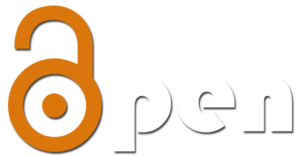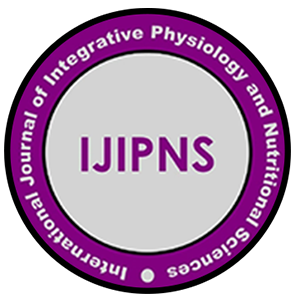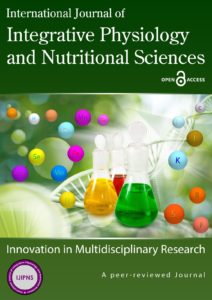Copyrights,Grants And Ownership Declaration
Once the paper is accepted in IJPNS, it cannot be withdrawn under any circumstances and the authors cannot submit the same research article to any other journal after such denial by this journal. It is also important to mention here that authors are not allowed to submit the research article to any other peer-reviewed journal until a final decision is taken by IJPNS (acceptance or rejection). However, authors can submit substantially different research articles based on the IJPNS article to other scholarly journals. It is the sole responsibility of the corresponding author to make sure that the research article submitted to IJPNS does not violate the intellectual property rights of other authors. This includes copyrights, patents, trademarks, or any other property rights of any person in the world. The authors will be allowed:
- To use the tables and figures published in IJPNS article provided that a proper reference has been provided.
- To use the article for their own use such as distributing the article copies to students, scholars and research colleagues, submission to libraries, uploading on their social media home page or blog provides that the use is purely non-commercial.
- It is expected that the article submitted to IJPNS are free from plagiarism and written after following all moral and ethical standard.
Plagiarism Policy
IJPNS is a multidisciplinary journal, peer-reviewed journal in the field of nutrition and health. The journal has stringent norms to prevent any form of plagiarism. All submitted articles will be screened using plagiarism detection software and if plagiarism is detected, the articles will be rejected and the authors will be given a chance to explain their stand within 2 weeks of such decision. If the author (s) fails to explain the cause of plagiarism, they will be barred from publishing in IJPNS for a period of 2 years and the concerned person in the author`s parent institute shall be informed for further action. The following are considered plagiarism by IJPNS:
Full plagiarism: When it is observed that the text or the results are directly taken from other published sources without any change in the sentences or grammar or content.
Partial plagiarism: When the content is taken from several places and only a rephrasing of text is done without any intellectual input from the authors.
Self-plagiarism: When authors copy-paste the text from their previously published article (s). IJPNS does not allow self-plagiarism.
Patient consent: For all studies involving patients, the patients must be informed about the study objectives and any other consequences of the study on their health. Any information that reveals the identity of the patient such as names, photos or any other information must not be disclosed unless it is required for scientific purposes. The ethical approval number assigned to human studies must be disclosed in the methodology section of the article. All clinical trails must be registered to clinical trial registries:
http://www.ctri.in/; http://www.actr.org.au/;
http://www.clinicaltrials.gov/; http://isrctn.org/;
http://www.trialregister.nl/ and http://www.umin.ac.jp/ctr
Article Sharing
The following guidelines must be adhered to while sharing any article published in IJPNS.
- Preprint: Authors are allowed to share accepted articles provided that they have mentioned the Digital Object Identifier (DOI) number assigned to the article. The use of DOI number helps in easy identification and citation of the article. In case authors have accounts on arXiv or RePEc, they can share the accepted articles with DOI number on these databases.
- Accepted Manuscript: Authors are also allowed to share the articles on their personal homepage of social media platforms. They can also share the articles with their parent institution for storage in the institutional repository.
- Sharing of articles to research students or other fellow researchers only for non-commercial purposes.
- Authors can also share the research article published in IJPNS to websites where they have received special requests to share the article, for example sharing on ResearchGate and similar platforms is allowed.
Open Access: All the articles published in IJPNS are published under open-access policy and hence available to use freely by scholars, researchers, and all private and government organizations across the globe. The research or review articles can be quoted, cited, or printed for distribution purposes provided that a proper credit to the authors has been given. IJPNS does not charge to corresponding authors for submission of the articles but a processing fee of US 40 will be charged to all accepted article to meet the expenses incurred while maintaining the website and other day-to-day functioning of the journal such as peer-review, database maintenance etc.


